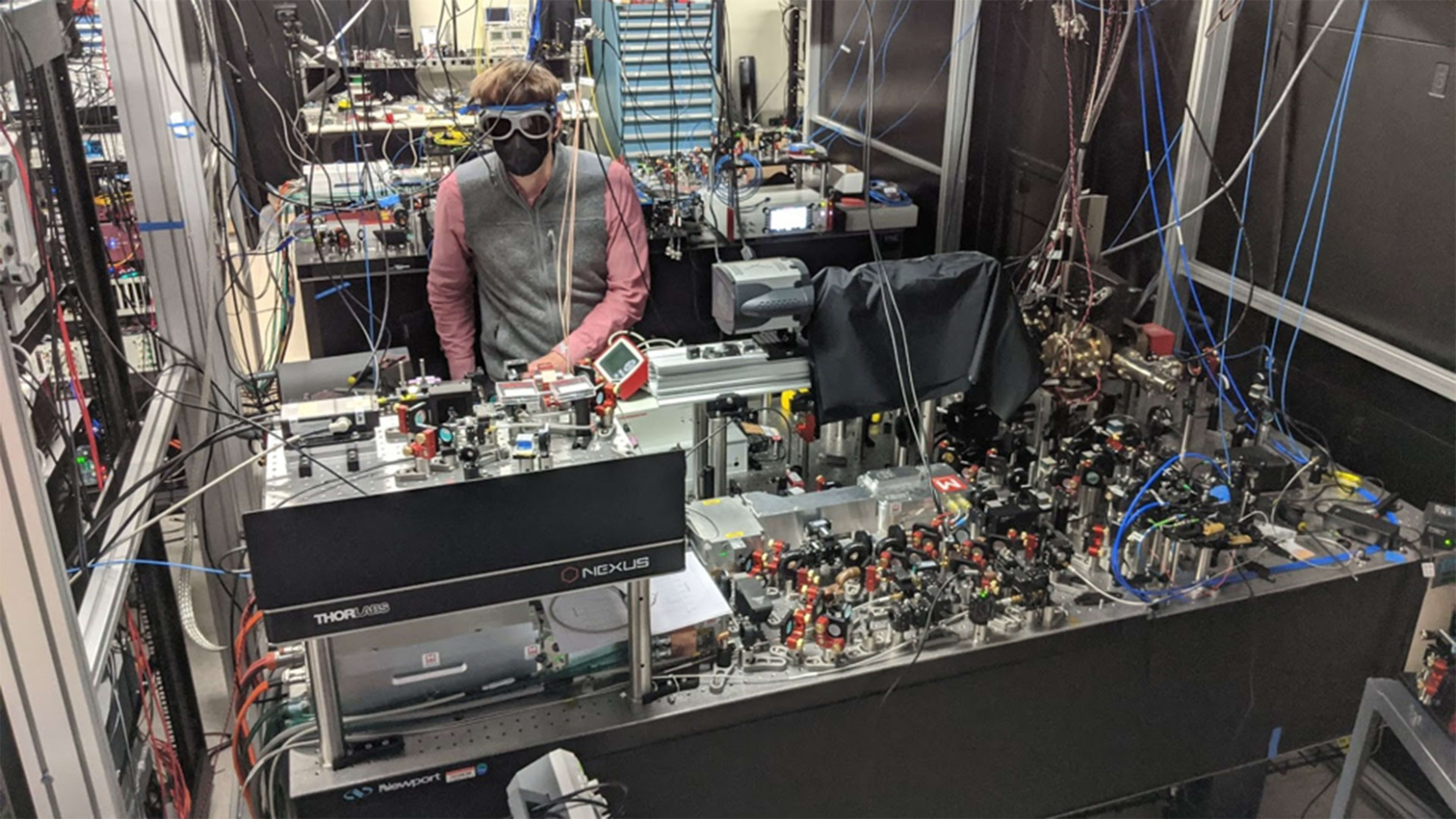Quantum computing has been a science project for a long time. But in 2021 the technology is beginning to reach beyond the capabilities of classical supercomputers. That’s mainly because science is getting better at controlling and harnessing the atomic-scale qubits that are the basic units of logic in quantum processors.
Research breakthroughs in this area at MIT and Harvard form the basis for a new Boston-based quantum startup called QuEra Computing, which is emerging from stealth with $17 million in venture capital behind it. The company recently received a research award from the Defense Advanced Research Projects Agency (DARPA), and says it’s already generated $11 million in revenue.
QuEra uses a unique quantum architecture and laser techniques to arrange and direct the tiny qubits in its 256-qubit system. Doing so is no easy feat. Qubits, which are atomic particles made from superconductive materials such as niobium or ytterbium, are temperamental and unpredictable, which can lead to “noisy” or imprecise results. So a certain amount of qubits normally have to be set aside for error correction. The more control that can be exerted over the qubits, the more of them can be used for actual computing.
Harnessing atoms
QuEra’s processor traps arrays of neutral atoms in a small vacuum chamber, then uses lasers to slow them down to virtual motionlessness, cooling them down to one millionth of a degree Kelvin above absolute zero. QuEra says this is a thousand times colder than the qubits in refrigerated quantum machines made by IBM and Google, two of the biggest players in quantum computing. The processor then uses flashes of laser light to arrange the qubits in the right positions to model complex problems.
“The nice thing about this platform is that we have a very clean control over the system,” says Alex Keesling, who co-invented QuEra’s technology and is now CEO of the company. “The atoms don’t interact with each other unless we tell them to, so it’s also very easy to closely pack them, and they’re all identical to each other, which makes scaling of the controls very easy.”
Keesling tells me this control has also made it easier for the company to increase the number qubits in the vacuum chamber. The company’s research started in 2015, and by 2017 the researchers had built a 51-qubit machine. In another two years it had made the jump to the current 256 qubits.
Commercial applications
QuEra’s technology will be most useful to researchers trying to model complex real-world problems with lots of possible outcomes. Quantum computers not only promise much more compute power than classical supercomputers but they are able to look at problems in a very different way. Classical computers rely on the binary logic of ones and zeros, which is good for some kinds of problems that require mathematical certainty. Qubits can represent far more than just two states. This makes them better suited for modeling and predicting the myriad of possible interrelations between multiple variables.
Keesling says that one of QuEra’s investors, Japanese commerce giant Rakuten, wants to use quantum modeling to understand the optimal number of wireless antennas for a certain area, based on an understanding of the millions of ways radio signal travels might travel and bounce off each other. He says QuEra’s system could also be used to discover new materials and drugs, or to model risk for finance companies.
“There is an enormous opportunity to make headway on some of today’s most critical problems that are just too big and complex for classical computers to handle,” he says.
QuEra’s other investors include Day One Ventures, Frontiers Capital and leading tech investors Serguei Beloussov and Paul Maritz, among others.
Recognize your brand’s excellence by applying to this year’s Brands That Matter Awards before the early-rate deadline, May 3.
